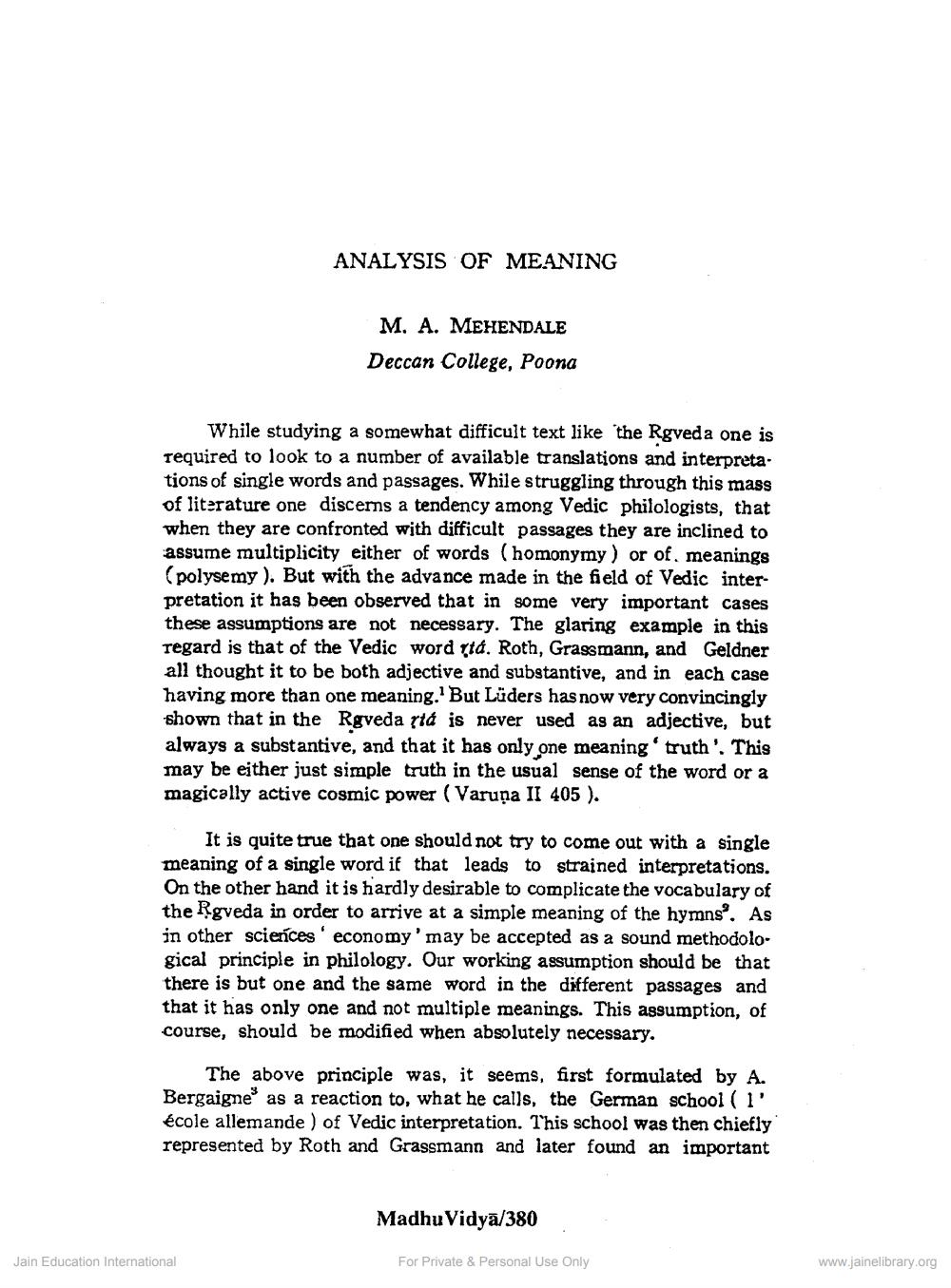________________
ANALYSIS OF MEANING
M. A. MEHENDALE Deccan College, Poona
While studying a somewhat difficult text like the Rgveda one is required to look to a number of available translations and interpretations of single words and passages. While struggling through this mass of literature one discerns a tendency among Vedic philologists, that when they are confronted with difficult passages they are inclined to assume multiplicity either of words (homonymy) or of, meanings (polysemy). But with the advance made in the field of Vedic interpretation it has been observed that in some very important cases these assumptions are not necessary. The glaring example in this regard is that of the Vedic word ttd. Roth, Grassmann, and Geldner all thought it to be both adjective and substantive, and in each case. having more than one meaning.' But Lüders has now very convincingly shown that in the Rgveda rid is never used as an adjective, but always a substantive, and that it has only one meaning' truth'. This may be either just simple truth in the usual sense of the word or a magically active cosmic power (Varuna II 405).
It is quite true that one should not try to come out with a single meaning of a single word if that leads to strained interpretations. On the other hand it is hardly desirable to complicate the vocabulary of the Rgveda in order to arrive at a simple meaning of the hymns". As in other sciences' economy' may be accepted as a sound methodolo gical principle in philology. Our working assumption should be that there is but one and the same word in the different passages and that it has only one and not multiple meanings. This assumption, of course, should be modified when absolutely necessary.
Jain Education International
The above principle was, it seems, first formulated by A. Bergaigne as a reaction to, what he calls, the German school (1' école allemande ) of Vedic interpretation. This school was then chiefly represented by Roth and Grassmann and later found an important
Madhu Vidya/380
For Private & Personal Use Only
www.jainelibrary.org




